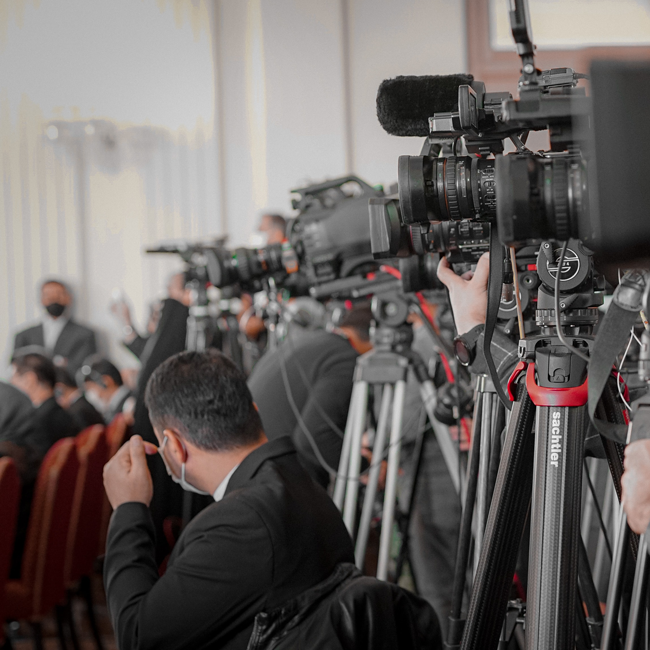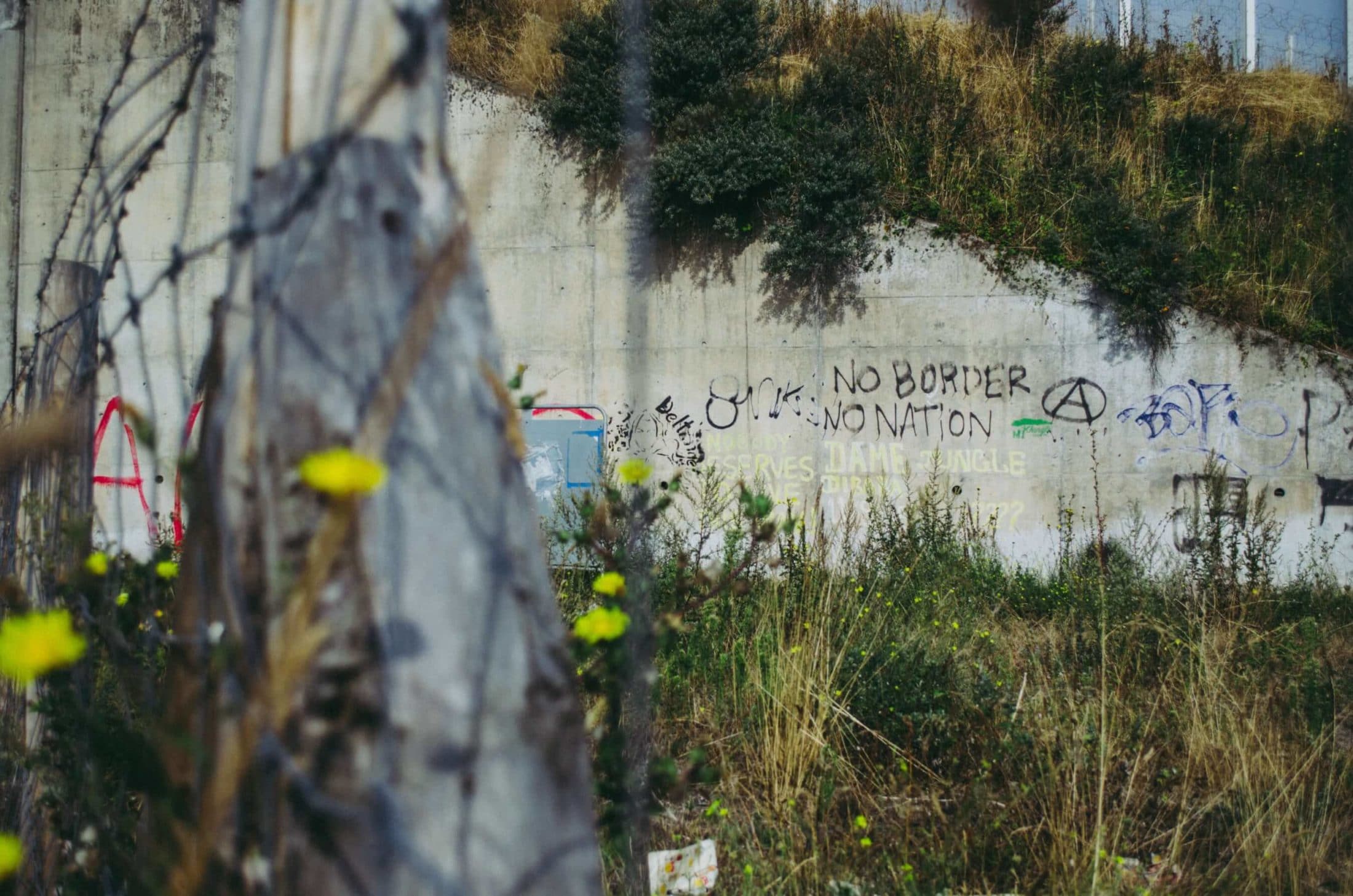Housing affordability crisis: The elephant in the room stomping young Australians

Housing affordability crisis: The elephant in the room stomping young Australians
Opinion + AnalysisBusiness + LeadershipPolitics + Human Rights
BY Intifar Chowdhury 16 MAY 2022
Affordably housing its peoples is a hallmark of a developed society. Yet, Australia’s housing system has been failing young people, argues Intifar Chowdhury.
Squeezed by rising rents and aggressive increase in property prices, young Australians are increasingly being locked out of the housing market, and thus are being denied the stability and financial security that was taken for granted by previous generations.
The housing affordability crisis deepens as inflation, cost of living and housing prices rise at a faster rate than wages. Similarly, Australia’s rental crisis worsens with natural disasters such as flooding and increased competition as the country reopens to international students.
The backdrop to the COVID-19 pandemic will also exacerbate this growing economic inequality across generations. In fact, those in their late 20s and early 30s have now known two crises: the Global Financial Crisis (GFC) of 2008-2009 and the COVID-19 crisis of 2020-2021. This puts them at unique risk and financial disadvantage compared to other members of society.
The reality on the ground is that, compared to their parents and grandparents, today’s young people are not only poor homeowners but also poor renters. The reality is an intergenerational theft.
While some have argued that housing should be at the front and centre of the upcoming federal election, housing affordability has not taken on a sufficient degree of importance in the policy narratives of the two major parties.
In fact, I’d agree that young Australians have been betrayed by both parties. Although the youth need a proper national plan for housing affordability and supply, their situation is sometimes met with rather condescending comments from the political leadership.
Prime Minister Scott Morrison’s comment – that “if you can’t afford rent, buy a house” is both comical and disturbing at first reading. As the PM flaunted in the first 2022 leader’s debate, first home buyer loan schemes allowed 160, 000 Australians to gain access to the property ladder last year. And his recent proposal to allow young people to tap into their superannuation has a similar ambition.
But what he neglects is how housing affordability concerns 67 per cent of Australians, many of whom are young people with low wealth and heavily taxed incomes. And government subsidies for a relative minority put upward pressure on prices for the many, presenting a trade-off of where it is more difficult to save a deposit for a home. Therefore, such comments are disturbing reflections of how far removed Australian political leaders are from the reality on the ground.
Housing affordability: a sticky problem?
Housing unaffordability has been identified as a pressing problem for more than decade now, so why then does it remain unresolved? The simple answer to this is that the politics around the problem prevents a permanent solution.
The housing affordability crisis persists because of two political reasons. First, more voters have an incentive to maintain the status quo compared to those who could benefit from a more equitable housing system. Although the growth in property prices entrenches economic inequality, it is a positive for incumbent homeowners who want to capitalise on their investment.
Further, impenetrable, cumbersome and ambiguous policies spook those with property. They fall into the status quo bias. For example, Labor’s 2019 election slogan to tone down investment incentives and introduce the housing tax upset property and construction industries and offended a large constituency of property owners. These radical proposals cost Labor the election.
Existing housing policies also fail to address the root cause of the problem. Most efforts to deal with unaffordability aim to cool housing demand rather than increasing supply. Pete Wargent, co-founder of BuyersBuyers, believes this approach would “make a marginal difference to affordability over time”.
Although investment incentives like CGT discounts and negative gearing are touted as the key drivers, recent review of six economic papers revealed that the combination of both contributed only a small 1 per cent to 4 per cent increase in dwelling prices. Whereas zoning restrictions, which limit the supply of land on which to build homes, contribute to almost half the rise of average detached house prices in major metropolitans, like Sydney and Melbourne. Centre for Independent Studies’ chief economist and a former RBA official, Peter Tulip, suggests increasing supply and lifting zoning restrictions can have huge benefits.
Yet, these are difficult to attain. The politics of improving housing affordability is determined by whether there are more voters who are property owners than not.
That is, whether there are more beneficiaries of unaffordability who will vote in their self-interest and support policies and parties that will keep prices high and rising, even if that compromises the future security of young people.
According to the Australian Electoral Commission, in 2022, there are 4.2 million voters aged over 65 compared to 3.1 million voters under 29. That is a difference of 1.1 million between lightly taxed, asset-rich older Australians, and younger wage earners. This intergenerational inequality is therefore a function of the classic headlock between the older haves and the younger have-nots.
Simple fix: increase supply?
Housing unaffordability is a complex structural issue that can’t be viewed through a simplistic lens.
Despite a plethora of issues influencing the housing market, the imbalance in supply and demand is at the crux of the matter. Rather unsurprisingly, the Property Council of Australia, recommends major parties to address supply shortages to improve affordability.
But adequate supply of housing doesn’t just mean constructing a certain number of dwellings on greenfield sites. It needs to be well-located and well-serviced with job, social and community infrastructures.
At both federal and state level, more commitment is requited to increase urgent need for more social housing. With a historically low level of social housing, (i.e. a non market rental housing sector), this would be more affordable and secure for low-income earners. Both major parties, however, fall short on public housing investment this election.
Supply of affordable housing can be increased by institutional investments, but investors show relatively little interest in affordable housing largely due to perceptions of risk and comparatively low returns. This is where government incentives and the introduction of some form of financial instrument (similar to the discontinued National Rental Affordability Scheme) could work.
However, evidence from Europe and Britain, suggest that government intervention may decline as affordability worsens. There is a major challenge to rolling out reforms: homeowners want to protect their properties from being undermined by growing housing supply, resulting in less support for government intervention. This feeds into inequality.
Another option is rent control. But opponents suggest that more limitations in the rental property make owning far less appealing. This again points to the headlocks between homeowners and renters; as the classic adage from former PM John Howard goes: no one is complaining in the streets about their house value going up.
Under the current structure, young people are common losers of the housing system. A change in government won’t be a silver bullet for housing affordability in Australia. What is needed is a structural change which is hard to attain given competing interests, imbalanced power and wealth dynamics among stakeholders.
Explore the role that ownership plays in our lives. Join Executive Director of The Ethics Centre Dr Simon Longstaff AO for The Ethics of Ownership on the 17th of August 6:30pm AEST. Tickets on sale now.
Ethics in your inbox.
Get the latest inspiration, intelligence, events & more.
By signing up you agree to our privacy policy
You might be interested in…
Opinion + Analysis
Business + Leadership, Politics + Human Rights
Ask the ethicist: If Google paid more tax, would it have more media mates?
Opinion + Analysis
Business + Leadership, Relationships
What makes a business honest and trustworthy?
Opinion + Analysis
Politics + Human Rights, Relationships, Society + Culture
In the face of such generosity, how can racism still exist?
Opinion + Analysis
Business + Leadership
Managing corporate culture
BY Intifar Chowdhury
Intifar is an Associate Lecturer at the ANU School of Politics and International Relations. Her doctoral research tackles the important question of whether young people are turning away from democracy. Her political commentary on the engagement of young people in politics and issues affecting youth voters has been published in The Conversation, ABC, The Guardian, The Canberra Times and ANU's Policy Forum.
Antisocial media: Should we be judging the private lives of politicians?

Antisocial media: Should we be judging the private lives of politicians?
Opinion + AnalysisPolitics + Human Rights
BY Isabella Vacaflores 13 MAY 2022
The footage was grainy, but the man stepping out of the gay sex club was easily recognisable.
David Campbell, then transport minister of the New South Wales Government, was outed in the evening news, prompting his resignation the following day. His sexuality was the subject of intense media coverage, not least because of the impact it would have on his wife and children.
As headline grabbing and salacious as such personal scandals might be, one might question whether we should have the right to know about the private lives of politicians in the first place. After all, the fact of being queer alone bears little relevance to one’s ability to speak for their constituents, therefore arguably falling outside the realm of the public interest.
Yet, the journalist who broke the story felt differently, noting that the politician in question had “purported to be a family man”. As such, some might see this as an act of exposing hypocrisy, speaking to a deeper issue of character that is highly problematic for representative democracy.
So when it comes to dealing with information about the private lives of public officials, how morally justified are we in caring about what is done outside of parliament?
When rights collide
Although privacy is beneficial for human well-being and flourishing, it is not unequivocally good because such a claim can equally be used to hide information. This poses a significant threat when we consider how the personal lives of those wielding political power might influence their decision-making abilities, negatively impacting those that they claim to represent.
This tension between the claims to privacy of public officials and the rights of the public and the media to freedom of information is an undeniably hard one to resolve.
On the one hand, the revelation of Gladys Berejiklian’s relationship with Daryl Maguire and her subsequent resignation over accusations of corruption vindicate the idea that we should hold the private lives of politicians under constant scrutiny.
Yet, on the other, the case of David Campbell highlights the murky waters in which public interest claims lurk, with a person being pressured to end their political career over a seemingly inconsequential fact about their personal lives.
Are we morally justified in paying attention to and seeking out private information about public officials? After all, prima facie, all individuals have morally and legally robust claims to privacy.
Nevertheless, we generally consider it reasonable for interviewers to enquire about a potential employee’s prior working history to ensure that they are a good fit, or for a detective to ask someone questions about their private life to solve a crime. This is because privacy can and sometimes should be forfeited (with our knowing consent) for other rights or purposes, such as safety and transparency.
On a similar note, many citizens would see certain information about the private lives of politicians as relevant to their decision of who to vote for. This interest is warranted because public officials attain their legitimacy and authority from being entrusted to represent their constituents.
Ultimately, serving in government is ethically demanding – to avoid the corruption of power, we must elect individuals who have a track record of not abusing such privileges. According to the perpetually relevant ‘unity of virtues’ theory of the ancient Greeks, individual morality exists across both public and private spheres of decision-making.
As such, an absence or excess of good behaviour in one’s personal life may be illuminating with regard to professional conduct.
For instance, the media has recently reported that Boris Johnson, in his previous job as a motoring correspondent, accrued over £4000 in parking tickets. This fact, whilst seemingly trite, implies a historical pattern of rule flouting behaviour by the British Prime Minister, suggesting that we ought not be surprised by his involvement in the Partygate scandal.
Such cases highlight the often-blurry public/private divide and justify why we might look to politicians’ personal lives for clues as to how they might fulfil their moral duty to represent their constituents and their interests – even if this conflicts with their own.
Social media and the personalisation of politics
Furthermore, many politicians willingly open themselves up to public scrutiny by using their personal virtues and achievements to appeal to voters. We need not look further than Scott Morrison’s Twitter and Facebook feeds, which regularly feature pictures of the politician cooking up a curry in Kirribilli House and donning blue in support of the Cronulla-Sutherland Sharks, to see how political figures selectively reveal aspects of their private life to project a likeable image.
For as long as public officials advertise themselves and attack others on the basis of irrelevant personal characteristics and decisions (see criticisms recently directed at Anthony Albanese for everything from his weight loss efforts to having a “quiet week” of campaigning despite being in isolation for Covid) they cannot also claim to be innocent victims of the press, particularly when journalists are merely reporting on these assertions.
Nevertheless, politicians often resort to the refrain that ‘the media goes too far’ to divert attention away from their more questionable acts. When it was revealed that self-proclaimed family man and current Deputy Prime Minister Barnaby Joyce was having an extramarital affair with a staffer, a formal complaint about news coverage of the incident was made despite the couple accepting $150,000 to do a tell-all interview about it on live television.
The omnipresent pressure for news outlets to turn a profit leads them to sensationalist reporting and a rather liberal stance as to what information falls into the purview of the public interest.
However, political journalism acts as an irreplaceable check on power, and we ought to be wary of solutions that involve stifling it more than it already is under Australia’s extremely rigid defamation laws.
Towards a better discourse
Instead, content relating to the private lives of politicians needs to be understood in terms of its relevance to their ability to execute their role. We should actively dismiss and avoid searching for details that tell us nothing about the honesty, accountability, competence, integrity, judgement, and self-discipline of a public official, no matter how salacious. However, we can feel justified in pursuing information that reveals their historic performance in such areas.
Admittedly, this is a long laundry list that leaves few areas off-limits. It is important to note here that judgements about protected characteristics alone – such as race, sexuality, religion and gender – are not morally acceptable ways in which to judge the competence of an individual, as established under anti-discrimination laws.
That said, we cannot shy away from investigating how public officials have acted when they thought nobody was looking, particularly when such actions reveal how they use (and abuse) power or contradict their espoused values.
Because the relevance of this information can only be ascertained once it has been made publicly available, there will always be some politicians that have their privacy unjustly violated. This is a trade-off that can be easily defended when we consider the immense number of people that benefit from having a government composed of honest and accountable representatives.
Additionally, anyone entering a public-facing role knowingly places their privacy in a position of vulnerability. If they have something to hide, politics is probably not the place for them, practically and principally speaking.
Furthermore, we can limit the collateral damage of this proposal by encouraging journalists to prioritise reporting on facts that expose political corruption and speak truth to power. By choosing not to indulge in amusing but inconsequential gossip about the private lives of politicians, we can help change the incentive structure of the media system whilst simultaneously promoting enlightened attitudes towards sex and other areas of intense, but often illegitimate, public interest.
The democratic function of the press falters when trivial details about the lives of politicians consume all the resources of our finite attention economy. As such, it is a moral imperative for news outlets to maintain strong ethical standards when it comes to their reporting on the private lives of politicians, focusing their coverage on that which is relevant to their ability to bear office.
Finally, as public ethicist Patrick Dobel writes, “we should judge as mortals judging other mortals”. Public officials are not perfect people, but if they can recover from a fall from grace by regaining trust and legitimacy in the eyes of the people then we should leave them (and their sex scandals) be.
Ethics in your inbox.
Get the latest inspiration, intelligence, events & more.
By signing up you agree to our privacy policy
You might be interested in…
Explainer
Politics + Human Rights
Thought Experiment: The famous violinist
Explainer
Business + Leadership, Politics + Human Rights
Ethics Explainer: Dirty Hands
Opinion + Analysis
Business + Leadership, Politics + Human Rights
Why fairness is integral to tax policy
Opinion + Analysis
Business + Leadership, Politics + Human Rights
Democracy is still the least-worst option we have
BY Isabella Vacaflores
Isabella is currently working as a research assistant at the Global Institute for Women’s Leadership. She has previously held research positions at Grattan Institute, Department of Prime Minister & Cabinet and the School of Politics and International Relations at the Australian National University. She has won multiple awards and scholarships, including recently being named the 2023 Australia New Zealand Boston Consulting Group Women’s Scholar, for her efforts to improve gender, racial and socio-economic equality in politics and education.
Yellowjackets and the way we hunger

Yellowjackets and the way we hunger
Opinion + AnalysisRelationshipsSociety + Culture
BY Joseph Earp 10 MAY 2022
Yellowjackets, with its widely acclaimed first season, has a more disturbing element than its surface of considerable violence and horror.
Sure, the Showtime series, which follows a group of young athletes as they crash-land following a disastrous plane trip in the middle of the wilderness and turn, with visceral, enjoyable brevity, to cannibalism and taboo-shattering behaviour, contains a lot in the way of gore. There are broken limbs; bodies eating up bodies; physically construed nightmares which the protagonists cannot escape.
But underneath that immediate level of violence is a claim, considerably more unsettling than fractured calcium, that our ethical systems are far from stable and robust. We’re not bent towards virtue. We seem to be shaped in the opposite way. Yellowjackets knows that. And more than that, the show loves it.
Corruption Seeps In, Naturally
Yellowjacket’s “heroes” – a word which only means to indicate those characters who are applied with a particular, and frequently intense, narrative scrutiny – are the stereotypes of “ordinary” people. The show, which flips back and forth between the present and the deep, traumatic past, makes a great deal of effort to depict that. There are extended shots of the central characters, moving their way through the world, not even thinking about the trauma they inflicted on others, deep in their pasts.
Indeed, the flashback structure of proceedings, one that allows the central mystery to unfurl slowly – who ate who, following that terrible plane crash? – mines much from the main characters’ attempts to live their lives freely in the aftermath of their great collectively-constructed horror.
In the show’s temporal present, these plane crash survivors are all people who wake up every day, and apply themselves to their jobs, and are loved and love in turn. You’d meet them, and catch their eyes in a shopping centre, and smile, astonishingly oblivious of their histories. It’s only when we get painful stabs of their past, unfolded in flashback, that we come to understand that there is something hiding here; a history streaked by vicious behaviour.
That “something” can’t be pinned down to the specifics of our heroes’ lives, either. We can’t shirk the implication that we’d fail to avoid the same behaviour – it is nothing less than the human capacity for violence. We are all confronted, more frequently than we would like to admit, with the idea that we have a potential for evil.
Remember that time you stood on the train platform, and considered, all of a sudden, pushing a stranger onto the tracks? Not for any reason – just because you could. Because, despite what we hope ethics might teach us, there’s something actively joyful about vicious behaviour.
Yellowjackets doesn’t make anything extraordinary out of its central characters. These are just human beings, ones who happen to have been freed – predictably, almost boringly – from the social code of morality, and plunged into horror. We all could be there. All that Yellowjackets tells us is that, most worrying of all, we would enjoy it.

So Why?
The philosopher David Hume constructed his ethical system out of twin poles: pleasure and pain. Hume believed that we all have a natural repulsion to pain, and an attraction to pleasure. That, for him, was the foundation of all ethical behaviour, the starting point that explains empathy, charity, and goodness.
Yellowjackets tells us that’s not true. The show’s spark of originality is not to prove that we all have a propensity for inflicting suffering. That’s already been explored through multiple works of art – consider, for example, the Netflix smash hit Squid Game, which should be considered the contemporary final word on what happens when you guide desperate people towards viciousness.
No. What makes Yellowjackets special is that its central characters have spent the rest of their lives following the plane crash pursuing the highs of gnawing on another human being. They’re not tortured – they’re hungry.

We Do What We Want – Thank God
If that sounds horrifically bleak, it’s because, despite its considerable vein of humour, Yellowjackets is horrifically bleak. We are inundated with art that aims to provide us with a moral compass, designating bad and good behaviour, and telling us how to navigate both. The thematic work, quite often, in these pieces of popular culture, is to condition us emotionally – to train us to be repulsed by horror, and drawn to goodness.
Yellowjackets does not do this. It makes the horrendous appear attractive: “look at these regular people, who ate one another, and defied the social norm, and found themselves in the process.” And it makes the virtuous seem weak: “look at those fools who let their sense of goodness stop them from doing what they want to do.”
If there’s any hope here, then, it’s our capacity to understand pleasure and pain in a more complicated way than Hume did, and that much contemporary art concerned with morality encourages us to do so. Rather than monoliths of feeling – this is pleasurable, and thus morally good; this is not pleasurable, and thus morally bad – Yellowjackets encourages us to mine the depth of our affect, and see it as being filled with nuance.
As Yellowjackets teaches us, we can’t hope that we will have an intrinsic and affective pull away from vicious behaviour, and a pull towards virtuous behaviour. What we can hope, instead, is that we understand our emotional states of pleasure and pain as containing more complexity than mere repulsion and attraction. We should become the experts in our own emotional states – not merely how they feel, but how they tell us to act.
After all, as plane crash victims who begin gnawing on each other’s bones tell us – not to mention addicts, or those who hurt the people they love – we can sink, pleasurably, into horror, and feel good about things that we don’t like, or no longer want to do.
We will never extinguish the joy of doing something we know we shouldn’t do. That’s the kid peeking at the Christmas presents before he should; of turning to our friend, maimed in a plane crash, and eyeing up their naked leg, considering our teeth in it. But what we can do is explore those feelings, and truly feel their complexity, and understand that no affect leads us more closely to one conclusion than any other. It’s up to us. That’s scary. But it’s also beautiful.
Ethics in your inbox.
Get the latest inspiration, intelligence, events & more.
By signing up you agree to our privacy policy
You might be interested in…
Opinion + Analysis
Society + Culture, Politics + Human Rights
Pleasure without justice: Why we need to reimagine the good life
Opinion + Analysis
Health + Wellbeing, Society + Culture
The right to connect
Explainer
Society + Culture
Ethics Explainer: Aesthetics
Opinion + Analysis
Relationships
The danger of a single view
BY Joseph Earp
Joseph Earp is a poet, journalist and philosophy student. He is currently undertaking his PhD at the University of Sydney, studying the work of David Hume.
Let the sunshine in: The pitfalls of radical transparency

Let the sunshine in: The pitfalls of radical transparency
Opinion + AnalysisBusiness + Leadership
BY Dr Tim Dean 3 MAY 2022
“Sunlight is said to be the best of disinfectants.” So wrote United States Supreme Court Justice Louis Brandeis, in his 1914 book critical of the concentration of power in banks and financial institutions, Other People’s Money and How the Bankers Use It.
Over a century later, sunlight is experiencing a resurgence in popularity as a disinfectant through the concept of radical transparency. This movement towards greater transparency is increasingly being adopted by a wide range of businesses from the technology, legal and environmental sectors as well as the banking and finance sector that motivated Brandeis’ book.
The movement has received a surge of attention in recent years due to policies promoted by pioneers like Ray Dalio, the founder of asset management firm Bridgewater Associates. Dalio sought to improve decision making by encouraging all employees to express their opinions freely about all aspects of the business, creating what he calls an “idea meritocracy”, where the best ideas rise to the surface.
Other pioneers include the US media streaming company, Netflix, and Finnish software consultancy, Reaktor, both of which have implemented wide ranging radical transparency policies covering everything from wage transparency to radical candour in internal communications to releasing employee emails to the public.
And the idea is growing in its appeal. The 2018 Future of Work Study, commissioned by online communications platform Slack, found that “80% of workers want to know more about how decisions are made in their organization and 87% want their future company to be transparent”.
However, there’s no single definition or implementation of radical transparency and it is employed in different ways in different contexts, and each has its own ethical implications.
The virtue of openness
In its broadest sense, transparency simply means openness, especially when it comes to revealing and sharing information. What makes it “radical” is when information that was previously closely guarded is systematically opened up to a wider audience, whether that’s within the organisation or without.
The primary ethical virtues of radical transparency are that it improves accountability and prevents corruption, in the sense of the improper use of power.
A culture of radical transparency not only makes it harder to conceal wrongdoing or compromising information, it also encourages a greater sense of honesty in dealings with others because of the anticipation that all information about those dealings will be revealed.
Radical transparency can also help counteract some of the power dynamics that influence decision making within organisations, whereby individuals might be reluctant to challenge the ideas and opinions of their leaders. A culture of radical transparency can improve decision making, as is claimed by Bridgewater, but also encourage people to speak up if they see something they believe is inappropriate.
Another form is wage transparency, which can promote fairness by giving employees more bargaining power in negotiations, placing them on a more even informational playing field with the employers. This is especially beneficial for those who are less inclined towards aggressive negotiation and can help counteract biases based on gender, racialisation and disability.
In an environment where trust in institutions, government and business is increasingly strained, radical transparency directed towards the public can serve to rebuild some of that trust. More organisations are laying bare information such as their employee diversity data, the results of internal or independent reviews – such as conducted by The Ethics Centre on behalf of the Australian Olympic Committee in 2017 – or details of their supply chains and environmental record.
Virtues and vices
Openness is a virtue. However, as Aristotle pointed out, any virtue taken to extreme can become a vice, and pushing transparency into “radical” territory steers it towards several ethical pitfalls and trade-offs that can easily be overlooked.
For a start, transparency sits in natural tension with privacy. Privacy is not just about restricting access to information but it can be thought of as the right of each individual to exercise some control over their personal information. This means they should have some power to choose whether or not to reveal their personal information. Some examples of radical transparency, such as wage transparency or the sharing of internal emails, can violate that right to privacy.
Privacy also enables us to protect ourselves from those who might use our personal information in bad faith to exclude, discriminate or persecute us. Radical transparency risks bleeding over into the personal space, such as if health, sexuality or religious attitudes are revealed that have no bearing on someone’s professional performance but which could expose them to unjust persecution.
One of the goals of radical transparency is to promote trust, but ironically it can also work to undermine it.
There are many kinds of special trusted relationships that are dependent on privacy, such as the relationship between patient and doctor or priest and parishioner. Should these conversations be made open, many people would end up concealing information for fear that it would be made public.
While no-one is suggesting radical transparency in the doctor’s surgery quite yet, it underscores that transparency in inappropriate contexts can actually cause people to suppress information rather than share it. There is already evidence that some workers in radically transparent workplaces change their behaviour to conceal information from their peers and act in a performative way that will be seen in a favourable light by others even if it’s not productive.
Trust in others is something that is learnt and must be cultivated through experience and practice. Should radical transparency seek to make trust redundant by making all information public, there is a risk that the virtue of trust will atrophy. This represents a real ethical risk should those individuals return to a less transparent environment where the virtue of trust is required once again.
Respectfully disagree
Radical transparency also requires an organisation to establish appropriate norms and culture in order to execute it in a safe and non-toxic way. In many instances, we modulate how we speak, how honest we are and what information we share on the basis of the relationships we have and the respect we owe to the other parties. In many contexts, deference, sensitivity or an ethic of care – or just the norms of good manners – trump candour, such as when we are speaking to a senior or vulnerable individual.
If we have implicit norms that promote deference to senior management, for example, or that encourage us to be sensitive towards a colleague who has just lost their job, these can come into conflict with the norms of radical transparency. There are accounts of employees feeling tremendous awkwardness when they’re thrust into radically transparent meetings where they’re expected to criticise managers or give reasons why a colleague should be fired.
It can take considerable time and effort to change the norms of discourse within the workplace to enable something like Dalio’s “meritocracy of ideas” in a way that is not overly confronting, where people feel like disagreement is tantamount to a personal attack.
These norms require that people feel respected, secure and safe to speak, which can also be threatened if radical transparency is executed poorly.
If implemented in a targeted and systemic way, radical transparency can deliver considerable ethical benefits in terms of elevating trust, improving decision making and encouraging constructive disagreement. But the most radical and hasty implementations carry serious ethical risks. Arguably, the point of the radical transparency movement is not to continually drive towards ever greater levels of transparency in every domain but to make openness an ethical norm that is, itself, no longer radical.
Ethics in your inbox.
Get the latest inspiration, intelligence, events & more.
By signing up you agree to our privacy policy
You might be interested in…
Opinion + Analysis
Business + Leadership
Despite codes of conduct, unethical behaviour happens: why bother?
Opinion + Analysis
Health + Wellbeing, Business + Leadership
Service for sale: Why privatising public services doesn’t work
Opinion + Analysis
Business + Leadership
Workplace ethics frameworks
Opinion + Analysis
Business + Leadership
The value of principle over prescription
BY Dr Tim Dean
Dr Tim Dean is Philosopher in Residence at The Ethics Centre and author of How We Became Human: And Why We Need to Change.
A foot in the door: The ethics of internships

A foot in the door: The ethics of internships
Opinion + AnalysisBusiness + LeadershipPolitics + Human Rights
BY Althea Kuzman 2 MAY 2022
It’s just to get my foot in the door, I tell myself for the fifth time today as I offer my brain, my degrees and time to someone for free.
It’s a phrase that I’ve always found to be so incredibly visceral. I picture a door just about to slam shut in my face, that I have to hastily shove my foot in before it swings to a heavy close. Or a door that is slightly ajar, an unknown little me comes knocking and I have to slip my foot in and pry the thing open – to beg for an opportunity.
A foot in the door to do tasks which by now should be compensated. Because somehow in my years of trying to find a suitable job, no-one deems my skills to be transferable.
None of these scenarios really paint a picture for a healthy work foundation.
One would think that multiple arts degrees and years of casual jobs following instructions, would qualify me for an “entry level position”.
But it doesn’t. It leaves me cold emailing organisations, asking if they can send their off cuts to me so that I can get exposure. So that I can build a portfolio. So that I can earn a living and build my career.
But in my thinly veiled bitterness I digress. I chose the arts. I chose the creative field where getting your foot in the door is seen as a ‘privilege’. Having worked actual entry level jobs such as gallery host, our role was held up on a pedestal, yet we were not. We were made to simultaneously feel so lucky to have this job and yet so small and very replaceable. Why? Well, because it looks so good on the CV.
But in reality, it hasn’t really done anything to help my long-term career. And while I’ve had some wonderful bosses who have helped mentor me to learn and grow, this no longer seems like valid proof that I can, in fact, progress my career. It also doesn’t help that the pandemic cut arts positions in half.
The issue that lies here is often the refusal in hiring processes to acknowledge transferable skills. Which leaves you wondering, where do you gain these industry specific skills if no one will hire you for entry level jobs? Internships, of course.
Internship or Indenture?
Internships are fascinating mostly because of their prevalence, lack of regulation and lack of overall purpose. A report for the Fair Work Ombudsman by Adelaide Law School in 2013 states that “In Australia, as elsewhere, the term ‘internship’ is without fixed content. It has a broad and uncertain meaning covering everything from unpaid or paid entry level jobs to volunteer work in the not-for-profit sector”. This covers such a breadth of options that no wonder those starting out in their careers can fall into the trap of being exploited.
Internships are rife, particularly in the arts and on a global scale. Note when referring to the arts I include any creative industry, because they all bleed into each other – skills intersect and majority of skills learned are transferrable. There would be no issue with internships… if they were paid, but they rarely are.
In the UK, Sutton Trust is a non-for-profit organisation that fights for youth social mobility. Their work spans research on the prevalence and the social impact that internships have on recent graduates or those looking to change their career. Their 2018 report found that that 86% of arts internships are unpaid. The issue with unpaid internships is that life isn’t free.
Putting numbers on this, to live in London for a month whilst doing an unpaid internship costs £1,019 (about AUD$1800). And to make matters worse, due to the lack of legal clarity surrounding internships, there are concerns that some employers are exploiting this grey area. A harrowing ethical dilemma – getting an extra pair of hands without even attempting to understand their own responsibilities towards interns.
Due to the lack of legal clarity surrounding internships, there are concerns that some employers are exploiting this grey area.
It’s interesting to note that internships are always perceived as a stepping-stone. The Australian National Association for the Visual Arts (NAVA) has a fact sheet on internships and what to expect, stating that they can be either paid or unpaid but the ‘crux of the situation is that it is an educational exchange’. NAVA go further to highlight the Fair Work Ombudsman’s criteria of an internship as a ‘meaningful learning experience, training or skill development’. This sounds completely reasonable, except when there is a precarious edge that tips easily into exploitation.
Researcher at the University of Montreal, Mirjam Gollmitzer recently detailed the precarious entryways into journalism. Often internships are seen as a socialisation into an industry or workplace, but Gollmitzer states that whilst that is ideal, research shows the opposite.
Through interviews with interns within the journalism industry, she finds interns who are ‘starved of mentorship and training’ and often left to their own devices. She highlights a powerful observation arguing that ‘the tacit assumption is that workers, not employers, are tasked with making the internship a success’.
How do we determine the success or value of an internship? To be seen as a meaningful learning experience, interns require mentorship, an environment to gain confidence and an understanding of how an industry works. Instead, Gollmitzer finds interns are often merely an extra pair of hands doing menial tasks, “with their experiences marred by haphazard interactions with time-strapped colleagues and arbitrary decisions by supervisors.”
The onus should be with employers to ensure interns are offered a valuable and structured experience where they can come out having truly learnt something and be given a genuine leg up in their career.
Instead many interns are left with a bitter taste in their mouth. They’re overworked, under paid (or not at all) and don’t walk away with skills or tangible experience they can take into an entry level job, which seems barely adequate. Which leads to the questions… when did jobs stop being a place of meaningful learning experiences and skill development? And how did we palm this off onto unpaid internships?
How did you get your start?
The above two questions are integral in understanding the shift that has occurred in the workplace. When listening to boomers talk about their start in the industry, often we hear those anecdotes about how they started in the photocopy room and someone noticed their intelligence and they were given a chance. Or how they were internally trained and given qualifications within the organisation.
The fact of the matter is that entering the workforce has been increasingly difficult for young people. The latest statistics from the HILDA Survey by The Melbourne Institute of Applied Economic & Social Research shows that only about 40% of graduates find full-time work in the first year out of full-time education. Their median hourly earnings are about two-thirds of median earnings of all workers, which is abysmal since our cost of living is ever on the rise. But this is certainly part of the discussion surrounding internships. With more and more people unable to find full-time work, we turn to casual work, to subsidise rent and to simply make a living, despite these casual jobs often not actually having relevance to one’s degree or career aspirations.
Casual work is the backbone of all unpaid internships. We all know someone who has worked in a pub whilst doing an unpaid internship in their desired creative field. But this leaves young people with burnout, and a distaste for a particular industry. Imagine that – already having doubts about something you studied just because from the get go you’re told you’re lucky to be working for free.
Nothing in life is free, therefore internships shouldn’t be. Making internships unpaid ‘learning’ experiences often leaves out entire demographics of people who simple cannot afford to work for free. It perpetuates the elite nature of industry, and the idea of the grind straight off the diving block. It’s cruel and unnecessary. Particularly because it wasn’t quite as brutal in different generations. For the first time ever, gen Z are running the risk of earning LESS than their parents, something that has never happened in the course of history.
How do we fix this? While I’m not well versed in economics or capitalism, I do know that people need to be paid for their work. Don’t take on an employee if you don’t have the bandwidth to mentor or financially compensate them. We need to start treating entry level jobs as a first stepping stone into an industry and leave the exploitation of young workers in the past, where it belongs.
Ethics in your inbox.
Get the latest inspiration, intelligence, events & more.
By signing up you agree to our privacy policy
You might be interested in…
Explainer
Politics + Human Rights
Ethics Explainer: Just War Theory
Opinion + Analysis
Business + Leadership
Self-presentation with the collapse of the back and front stage
Opinion + Analysis
Politics + Human Rights, Relationships
A critical thinker’s guide to voting
Opinion + Analysis
Business + Leadership
Pavan Sukhdev on markets of the future
BY Althea Kuzman
Althea Kuzman is an emerging curator and arts writer. She holds a Master of Curating and a BA in Communications and International Studies.
How to have a conversation about politics without losing friends

How to have a conversation about politics without losing friends
Opinion + AnalysisPolitics + Human RightsRelationships
BY Dr Tim Dean 21 APR 2022
There’s a reason our parents told us to steer clear of discussing politics (along with sex and religion) in polite company. Because as soon as politics is raised, there’s a very real chance that the company will become significantly less polite.
One reason political disagreements can be so divisive is that, unlike other contentious topics, like whether pineapple belongs on pizza, politics taps into our deeply held moral values and emotions: taxation policy isn’t just about the budget’s bottom line, it’s fundamentally about fairness; climate policy isn’t just about decarbonisation, it’s about the harm that our society is inflicting on future generations.
The moral dimension of politics can make us less tolerant of disagreement and more likely to see other views as not just different but mistaken, and perhaps dangerously so. It’s easier to shrug off someone’s opinion about the latest episode of The Bachelor than it is to let their views on asylum seekers pass without rebuttal.
The good news is that there are ways to have fruitful conversations about political differences if you approach them with care.
Before you start
Disagreements don’t have to be corrosive to our relationships or wellbeing. In fact, genuine disagreements give us an opportunity to learn, grow and share our perspectives with others. But they take time and effort to set up.
So before you utter a contrary opinion to a friend or family member about a political issue, first reflect on the strength of your own views and how open you are to new perspectives and evidence.
In today’s heated political environment there can be a great deal of pressure on us to form an opinion and take a side before we’ve had a chance to digest all the relevant information. There’s also a strong tribal element to politics that makes us more likely to adopt the views of ‘our side’ and oppose anything said by the ‘other side’. Many of us might even admit we hold opinions that we would struggle to justify if pressed.
Ideally, the strength of our convictions should be proportional to the strength of the reasons and evidence we can muster in their support. It’s still OK to form an opinion without doing a Masters degree on it first, but it does mean we should remain open to new information and perspectives that could change our mind. As a rule of thumb, if there are no reasons or evidence that could even hypothetically change your mind, then you’re being dogmatic and will likely receive no joy arguing about your views with others.
Before deciding to engage in a political disagreement, it’s also worth pausing to consider whether it’s worth arguing at all. It’s natural to feel compelled to correct a view you believe is harmful or wrong. But if it is likely that a disagreement could get heated or emotional, or it’s unlikely that you’ll be able to influence the other person at all, then getting into a debate might end up being entirely fruitless. All you might achieve is damaging the relationship, even if you’re in the right.
Sometimes relationships matter more than being right. If you’re arguing with someone close to you, someone you care for or depend on, it may not be worth eroding that relationship for the sake of a political argument, especially if it’s almost certain to go nowhere.
And if you do want to actually change someone’s mind, you need to establish a base of trust and respect first. Foregoing one heated conversation in order to strengthen a relationship means you can build enough trust and respect so that you can have a constructive disagreement sometime in the future. Once you’re sure they’re willing to listen to you, you might even have a shot at changing their mind.
Where to start
If you do decide to wade in, the very first thing to do is keep your mouth shut! At least at the start of the conversation.
When we hear someone say something we disagree with, our first impulse is often to express our own contrary opinion. The problem is that this immediately frames the conversation as a ‘war of ideas,’ which can trigger all the baggage this metaphor implies. We see our conversation partner as our ‘opponent,’ we become focused on ‘winning,’ on ‘undermining’ and ‘outflanking’ their position. And absurdly, if we do learn something and change our mind, that’s considered ‘losing’.
It’s better to frame the conversation in terms of fellow travellers exploring an issue together. You might have different perspectives, but you have the same ultimate goal: improving your understanding of the world.
In order to avoid slipping into the argument-as-war frame, instead of expressing your opinion up front, start by asking questions. Ask why your conversation partner believes what they do. Get them to elaborate on what they mean by various terms. Then listen carefully, paying special attention to both the content of what they say as well as their emotional state when saying it.
Once they’ve had a chance to express themselves uninterrupted, summarise their view back to them and validate how they feel. You can do this without necessarily validating the content of their beliefs, even if you disagree with them. You might say something like “I see you’re really concerned about the economic impact of climate policy”, which acknowledges how they feel but doesn’t commit you to agreeing or disagreeing with them.
This kind of reflective listening achieves two crucial things. First, it gives you a fighting chance of actually understanding their view in detail rather than assuming you know what it is. This is important because people often mean different things when they use terms like ‘freedom’ in a political context, which can lead to confusion and crossed wires unless you probe them on what they mean.
Secondly, reflective listening helps people feel heard, which signals respect and can lower the temperature of a conversation. In fact, a lot of defensiveness can simply be a result of people wanting to be heard and feeling like no-one is listening.
Common ground
If you want to progress the conversation, the next stage is to seek out common ground, especially around values or goals that you both agree upon. For example, you might both care about taxes not being wasted, or you both care about the wellbeing of the next generation. At this point you can start to frame your difference in perspective as being different strategies to achieve common goals. This can take a lot of the edge out of arguments, making them feel less like you’re fundamentally at odds and show that you’re only disagreeing about the means to achieving shared ends.
Crucially, if you ever feel the conversation getting heated to the point where it’s difficult for either of you to engage constructively, then it can be wise to back out and change the subject before it’s too late. You can always revisit the topic once things have cooled down.
It’s also important to not let the conversation drag out. It’s unlikely that you’ll be able to fully grasp someone’s views or change their mind in a single conversation. But even a short conversation can help you better understand their views and allow you to offer up a different perspective. And if it’s done with patience and respect, it can open the door to future constructive conversations. After a few such chats, you might even find you change their mind – or find that your own view has changed. That’s not a bad thing.
The highly charged moral dimension to politics is why conversations about it are so fraught. But if we engage thoughtfully and respectfully we can have a rich conversation about politics, and still have a fighting chance of making it to dessert with friendships and family relationships intact.
Ethics in your inbox.
Get the latest inspiration, intelligence, events & more.
By signing up you agree to our privacy policy
You might be interested in…
Opinion + Analysis
Relationships, Society + Culture
The #MeToo debate – recommended reads
Explainer
Business + Leadership, Politics + Human Rights
Ethics Explainer: Liberalism
Big thinker
Relationships
Big Thinker: René Descartes
Opinion + Analysis
Relationships
Appreciation or appropriation? The impacts of stealing culture
BY Dr Tim Dean
Dr Tim Dean is Philosopher in Residence at The Ethics Centre and author of How We Became Human: And Why We Need to Change.
Agree to disagree: 7 lessons on the ethics of disagreement

Agree to disagree: 7 lessons on the ethics of disagreement
Opinion + AnalysisRelationships
BY Dr Luara Ferracioli Dr Sam Shpall 12 APR 2022
Senior Lecturers in Philosophy at the University of Sydney, Dr Luara Ferracioli and Dr Sam Shpall, participated in a live Ethics Centre conversation last year, discussing: how do we respectfully disagree? Ferracioli and Shpall concluded the following seven lessons, and how there can be value in disagreeing.
It often feels like we’ve lost a sense of principled disagreement – the idea that it’s OK if reasonable people think differently about something that matters.
In part, this is because we’ve changed the boundaries on what it’s OK to disagree about. Today, disagreement and debate about sensitive issues is seen by some as harmful or violent.
This can be interpreted as both attempts to de-platform bigoted ideologies, and also as those upholding the status quo having their power threatened and hiding behind a veil of civil society. It’s why subjects like Black Lives Matter and Critical Race Theory attract so much opprobrium – they speak directly to and challenge power, particularly latent and overt power dynamics.
We can all be guilty of treating disagreement as something that must have a winner and a loser. Whilst in other times disagreement has been used as a tool for everyone to learn; today, we disagree without any readiness to be persuaded.
When should we respectfully disagree? Should we always be open to having our mind changed? Can we remain friends with someone who we disagree with about things that really matter?
1. Genuine disagreement is not a bad thing.
There is value in good disagreement. Arguing well helps to flesh out all sides of an issue, bring to light underrepresented perspectives and contribute to solutions that benefit the most people; as in a true, functioning democracy and political system.
People occasionally conflate disagreement over an idea with a personal attack. This is a mistake, because disagreeing over issues and rationally debating the outcome – whether it’s who will do the dishes or how to allocate the national budget – is the best way to ensure a measured outcome that is in the best interests of the greatest majority. The more diversity of opinion there is in the discussion, the better the chance that the outcome will be balanced and representative of the greatest range of points of view.
The trouble lies in ensuring that the debate is measured, rational and charitable, and does not resort to humiliation and point scoring, as it often does in politics and personal disagreements. It’s important, also, to consider whether some disagreements of opinion are so fundamental that they license strong non-engagement moves like cancellation, de-platforming, and defriending; for example, boycotting a festival because of the presence on the bill of an act or speaker with whose ideas you disagree, or demanding their invitation to speak be withdrawn, such as in the recent case of Sydney Festival.
2. Genuine disagreement is often positively necessary for intellectual and emotional development.
Hopefully it’s already clear that cancelling and de-platforming people’s voices is not the way to stimulate a healthy culture of disagreement. Imagine I disagree with my partner about the wisdom of buying an apartment. One of us could simply acquiesce to make things more comfortable. This seems dangerous and unproductive. It makes it more likely that we will make the wrong decision, and it makes it more likely that at least one of us will feel ignored, disrespected and resentful. Notice how familiar the gendered dynamic is here in heterosexual romantic relationships: the controlling, all too often abusive man makes the decisions and expects or enforces compliance.
To make the right decision we both need to express our needs, wants and arguments clearly, and treat each other’s opinions with respect, working our way through the pros and cons to eventually reach a compromise based on mutual respect, not on one person overpowering the other.
In the case of the marriage equality debate in Australia, it came down to a national referendum, where the majority voted in favour of same sex marriage, proving pointless all the misleading ad campaigns and snarky media baiting of politicians and pundits.
3. Sometimes what people call “disagreement” is not disagreement at all.
Rather than disagreeing over philosophical ideas, sometimes people resort to the tactics of personal attack and outright hostility. If your aim is to humiliate a political opponent or win an election, you might well find that genuine disagreement and a contest of ideas is a less effective strategy than belittling them and misrepresenting their policies. (This goes partway to explaining political apathy, because it appears that many politicians are more interested in humiliating their opponent and scoring a point than having a real battle of ideas.)
Similarly, if your aim is to “win” a fight with your partner (and make yourself feel good, humiliate them, and put them in their place), you might find that genuine disagreement is a less effective strategy than personal attack. How often in a personal disagreement have you found yourself wanting to bring up a time in the past when the person has wronged you, that has no bearing on the current situation?
These analogies run quite deep, involving posturing, self-absorption, strong rhetoric, a lack of charity, no engagement with the “opponent’s” perspective, and so on. It’s not a true “disagreement” and contest of ideas, though, but a personal attack motivated by ego.
4. Sometimes what people call “offensive” and “hostile” is in fact disagreement.
In any interlocution, the first interaction always sets the tone: if it starts off hostile, that hostility will only escalate. You need to ask yourself: are you attempting a good faith engagement, or are you being defensive and stereotyping and categorising your opponent’s argument points?
Take, for example, the disagreement in the media and social media between podcaster Joe Rogan and musician Neil Young. Young removed his music from streaming service Spotify to protest its hosting of Rogan’s podcast, accusing The Joe Rogan Experience of spreading misleading information about Covid-19 vaccines.
Young followed up with a plea for Spotify employees to leave the company before it “eats up [their] souls”. Other prominent social media users then posted clips of Rogan using racial slurs. Rogan apologised for the slurs and said he will try, “in the future, to balance things out” with information on Covid. Spotify CEO Daniel Ek wrote, “based on the feedback over the last several weeks, it’s become clear to me that we have an obligation to do more to provide balance.”
5. Contemporary technologies (text messaging, emailing, social media) can make it harder to disagree well.
Communicating through the brevity of screens does not do much to help the art of good disagreement. With social media we’re getting less charitable with our opponents’ points of view and not always assuming the best version of their views. The way social media enables discussion is counter-productive – it’s so short, often anonymous, and you’re not looking at each other so you can’t see that your opponent is generally trying to have a good faith discussion.
Sarcasm and irony do not translate over text – consider how many times you’ve been misunderstood over email or text message. Abbreviating our vocabulary down into the bite size shapes of an emoji also engenders a poverty of language and ideas that benefits nobody. Consider Godwin’s law, that the longer an online discussion grows, the more the probability of a reference to the Nazis or Adolf Hitler reduces to zero.
6. Philosophical-collegial disagreement is a useful model for productive transformations of disagreement, from the personal to the political.
The philosophical model of disagreement has some valuable tools that should be exported for use in everything from intimate relationships, work environments and political culture to anonymous social interaction. One of the hallmarks of bad disagreement is a lack of charity – presenting your interlocutor in an unflattering light.
One of the things philosophers try to do at a university level is to reconstruct the best, most plausible, compelling version of the argument that one’s opponent is presenting. The principle of charity is related to a lot of other principles of agreeing well, such as the principle of intellectual humility, understanding that even one’s most cherished beliefs could be improved or better justified.
You want to win not because you put your opponent down but because you’ve made the best argument and your opponent can see why it should go your way.
7. Some disagreements are not worth having
The phrase ‘agree to disagree’ is a funny one that’s worth thinking about – it’s usually employed in the same way as phrases such as ‘it’s all subjective anyway’ or ‘everyone has their opinion’, not as a real move in a conversation but more as an ending to the conversation. Sometimes we need to end a conversation because it’s not getting anywhere, but sometimes we employ phrases like that to paper over the fact that we don’t have anything more to add to our argument.
But what about when one party to a disagreement rejects the foundational presuppositions of liberalism? For example, if someone thinks that men and women are fundamentally different and women deserve to be paid less than men, it might be very difficult to have a reasonable conversation with them when your foundational viewpoints are so radically different.
We have laws that prohibit certain forms of hate speech, of course, but these are hard to enforce and do not really help to answer many of the practical questions about how to interact with people who have these views.
We can’t give an overall theory about what to do in such cases, but we want to suggest that we steer clear of two dangers:
- failing to confront the genuinely inegalitarian, illiberal views; pretending that such views deserve the same sorts of consideration as liberal ones;
- and overstretching this response to illiberal exceptions.
Maybe you disagree with us about some of the things we’ve written, but hopefully you agree that there is value in disagreeing well.
Ethics in your inbox.
Get the latest inspiration, intelligence, events & more.
By signing up you agree to our privacy policy
You might be interested in…
Opinion + Analysis
Health + Wellbeing, Relationships
The myths of modern motherhood
Opinion + Analysis
Relationships
Why we find conformity so despairing
WATCH
Relationships
How to have moral courage and moral imagination
Big thinker
Relationships, Society + Culture
Big Thinker: Socrates
BY Dr Luara Ferracioli
Luara Ferracioli is Associate Professor in Political Philosophy at the University of Sydney and ARC DECRA fellow. She was awarded her PhD from the Australian National University in 2013, and has held appointments at the University of Oxford, Princeton University, and the University of Amsterdam. Her first book Liberal Self-Determination in a World of Migration was published in 2022 with Oxford University Press, and her new book Parenting and the Goods of Childhood is forthcoming (with Oxford University Press).
BY Dr Sam Shpall
Dr Sam Shpall is Senior Lecturer in the Department of Philosophy at The University of Sydney. He received his Ph.D. from the University of Southern California in 2011, and was a Postdoctoral Fellow there from 2011-2013. From 2013-2015 he was the Postdoctoral Associate in Law and Philosophy at Yale University, and a Lecturer at the Yale Law School. He also taught philosophy in four New York State Correctional Facilities from 2014-2015 as a faculty member of the Bard Prison Initiative. He works mostly in ethics, moral psychology, and the philosophy of art.
Periods and vaccines: Teaching women to listen to their bodies

Periods and vaccines: Teaching women to listen to their bodies
Opinion + AnalysisHealth + WellbeingRelationshipsScience + Technology
BY Lucy Peach 1 APR 2022
Most people probably know more about the cycle on a washing machine than the one that got us all here. I’m talking about the menstrual cycle (again).
It’s true that we’ve made major gains in shedding some of the menstrual stigma in recent years but there is still a lack of awareness and interest in the cyclical lives of 26% of all people on Earth. There are real consequences to this.
For a start, menstrual education is still reduced to two things: the management of a period and how to control our capacity to reproduce. No one explained that the hormones of the menstrual cycle weren’t just for making babies and that my cycle hormones shape who and how I am. I didn’t know, that far from being an unpredictable rollercoaster (that I would internalise as constant feelings of being too much or not enough), that there was a pattern to the emotional landscape of my month, that there were predictable phases to the cycle that could be harnessed. That it was ok to feel differently from week to week.
At a tender age, I learnt that my body was a problem to be fixed, with pads, tampons and soon enough with the pill. I believed I was safest while my cycle was disarmed. Until I was ready for a baby, what was the point in having one at all or so I thought? The truth is, without ovulation, we have no hormones and therefore no cycle at all. I wonder, would I have been so eager to reject ovulation in favor of the pill during my teens and twenties had I known of this?
I didn’t know that there were short and long-term protective health benefits to ovulation that taking the pill would eliminate. I didn’t know it was common to feel depressed and flat while taking it. I felt crazy. Instead of cultivating care and curiosity for my young body and what it could do, I leant not to trust it.
This disregard for menstrual cycles extended to the scientific community such that until the 90’s, clinical trials for new drugs weren’t required to include women at all.
Because menstrual cycles were seen as too complicated, men were considered the biological norm.
It seems that even amid a growing movement of awareness and appreciation for menstrual cycles, this default male setting still persists.
When thousands and thousands of women and menstruators reported changes to their cycle after taking the Covid vaccine, their concerns were initially dismissed by the medical fraternity. Women were waved away and stress was cited as the probable culprit for the mostly temporary changes.
It is true that stress can wreak havoc on a cycle — and who hasn’t felt stressed in new ways since the arrival of the pandemic? But the real kicker, was that there was no proof to speak of; important early clinical trials investigating the side effects of the Covid vaccine failed to consider the impacts on women’s menstrual cycles. This glaring omission at such a critical juncture is menstrual stigma still in action. That women were dismissed before being asked about their experiences after the vaccine is an indictment into how far we haven’t come.
Women were dismissed before being asked about their experiences after the vaccine is an indictment into how far we haven’t come.
In the absence of due diligence, people worried and concerns for post vaccination fertility also proliferated, risking confidence in the vaccine unnecessarily.
Vaccines work by creating an immune response which can cause the body stress. It stands to reason that there might be side effects to our cycles when our immune system is triggered. The latest research was funded by the NIH and published in Obstetrics and Gynecology. It was confirmed that while changes were (on average) minor and temporary, it was true: there was an impact. After looking at three cycles before and after vaccination, on average, the impact on cycle length following vaccination was just under a day.
For people who had both shots within one cycle, the average cycle length extension was 2 days and of these people, there were 10% who experienced cycle delays of 8 days or more. All of these changes were reported to have been resolved within two subsequent cycles and there was no effect found on the length of the bleed itself. Obviously within all of the experiences that create averages, the range for individuals could be considerable but with variations of up to 8 days considered to be within the realm of a normal cycle, these results are generally reassuring. Furthermore, in another study with more than 2000 couples there was no difference found in fertility when comparing unvaccinated and vaccinated couples. Conversely, a Covid infection was associated with a temporary decline in male fertility. So far so good.
Research like this is a positive step after a bungled start and authors of the menstrual study have called for more investigation into how the Covid-19 vaccination could affect other aspects of menstruation such as pain and changes to the bleeding itself. Going forward, bigger sample sizes that also include menstruators with more varied experiences are important.
With access to information and the stains of stigma beginning to fade, women and menstruators are learning to listen to their bodies and to speak up about their experiences. To be wary of doctors who prescribe the pill to fix a period when it merely masks underlying issues. To demand better than the average wait time of eight years to receive an endometriosis diagnosis and subsequent treatments. Weary of being disregarded when it comes to our health, we are finally beginning to trust ourselves. As Lisa Hendrickson-Jack explains in ‘The Fifth Vital Sign’, the menstrual cycle gives us important insights and is a critical marker of our overall health, just like heart rate or body temperature. Understanding your menstrual cycle is basic body literacy that is crucial to wellness.
The changes to menstrual cycles may be no more significant than a sore arm, but that doesn’t mean we don’t deserve to know about them. Small changes can still be significant to people hoping to plan or avoid a pregnancy, for instance. We need vaccines to combat Covid but we also need to be informed.
If there are any silver linings to be had during Covid it’s that we know that the old ‘normal’ wasn’t working for many of us.
Women’s health has long been overlooked, under-researched and under reported and now perhaps the new normal is to consider women’s health from the outset.
Hopefully it will be for the future we are carrying.
Normalise asking people about their cycles whether you are a researcher, a doctor, a partner or even a friend. Normalise noticing your own cycle and how you feel throughout the month. Normalise expecting better.
Lucy Peach, day 28 and vaccinated.
Ethics in your inbox.
Get the latest inspiration, intelligence, events & more.
By signing up you agree to our privacy policy
You might be interested in…
Opinion + Analysis
Relationships, Science + Technology, Society + Culture
5 things we learnt from The Festival of Dangerous Ideas 2022
Opinion + Analysis
Relationships, Society + Culture
How can you love someone you don’t know? ‘Swarm’ and the price of obsession
Opinion + Analysis
Relationships
When are secrets best kept?
Opinion + Analysis
Climate + Environment, Relationships, Science + Technology
From NEG to Finkel and the Paris Accord – what’s what in the energy debate
BY Lucy Peach
Lucy Peach is a long-time champion of the power of the menstrual cycle and an advocate for self-love and positive body literacy. She’s educated and empowered thousands with her theatre performances, workshops, and book, using science stories and songs to shift the period narrative in our culture from one of shame to one of pride. Lucy has spent the past two decades studying human biology, woman’s health & wellbeing, and Menstruality Leadership. She has a Bachelor of Science in human biology and biomedicine with honours in medicine, and a graduate diploma of education in human biology.
The Dark Side of Honour

The Dark Side of Honour
Opinion + AnalysisPolitics + Human RightsRelationships
BY Dr Tim Dean 30 MAR 2022
If someone insulted a family member, would you rush to defend their honour? If you said “yes”, then you’re not alone. In fact, American actor Will Smith did just this when he confronted comedian Chris Rock on stage at the 94th Academy Awards in March 2022.
It happened after Rock directed a joke at Smith’s wife, Jada Pinkett-Smith, that appeared to make light of her alopecia, a medical condition that causes hair loss. Smith mounted the stage, strode up to Rock and slapped him across the face, before returning to his seat shouting “Keep my wife’s name out of your fucking mouth!”
Many onlookers in the room and around the world were shocked at this outburst of violence, even if they thought the joke was offensive and hurtful to Pinkett-Smith. But others interpreted things differently. They saw a chivalrous husband doing what a good husband should do.
One such defence of Smith came from American comedian and actress, Tiffany Haddish. “As a woman, who has been unprotected, for someone to say, ‘Keep my wife’s name out your mouth, leave my wife alone,’ that’s what your husband is supposed to do, right? Protect you”, she told the media during the awards.
“That meant the world to me. And maybe the world might not like how it went down, but for me, it was the most beautiful thing I’ve ever seen because it made me believe that there are still men out there that love and care about their women, their wives.”
Haddish is speaking about the importance of an old moral concept: honour. It’s one that has been a core feature of many cultures around the world and throughout history, and even where its influence has waned, it still exerts some pull on our hearts, as we can see in the case of Will Smith.
But honour also has a dark side, not least contributing to violence as well as the oppression of women. The question is whether honour ought to play a role in our ethical thinking today, or whether it should be replaced by a more liberal ethic that prioritises reducing harm and injustice.
Reputation is life
At its heart, honour is about protecting one’s reputation as a virtuous and trustworthy individual. Anything that threatens that reputation, whether scurrilous gossip or a verbal insult, can – or even must – be forcefully challenged, violently if necessary.
Honour is particularly prevalent in smaller-scale societies that lack trustworthy institutions that prevent people from lying or cheating others, like law courts or government regulation of business. In smaller societies, it’s often left to individuals to figure out who can be trusted and who should be avoided.
This is where reputation plays a key role. If you have a good reputation, others will be happy to cooperate with you. If you’re found to be an untrustworthy cheat, word will get around that you should be avoided. In a society where cooperation might be essential to your survival, a bad reputation could be tantamount to a death sentence.
This is one reason why insults trigger such an acute response to people who value honour. An insult does two things: first it besmirches the target’s good name, often accusing them of some deviant or dishonourable act; and second it paints them as being weak, which is seen as a kind of moral vice in itself, especially in honour cultures that have norms that equate masculinity with strength.
As the psychologists Richard Nisbett and Dov Cohen describe in their famous study of the honour culture in the Southern United States:
“A key aspect of the culture of honor is the importance placed on the insult and the necessity to respond to it. An insult implies that the target is weak enough to be bullied. Since a reputation for strength is of the essence in the culture of honor, the individual who insults someone must be forced to retract; if the instigator refuses, he must be punished – with violence or even death.”
Even when honour culture has waned in popularity, as it has in the Southern United States, it can continue to influence the way people behave. Nisbett and Cohen describe one experiment that showed that when university students from Southern states were insulted, they were more likely to show signs of elevated hormones related to stress and aggression than students from the Northeastern states.
The price of honour
If an insult is to be met with force rather than shrugged off, then it can easily descend into conflict even over trivial statements. It can also easily lead to violence. Nisbett and Cohen cite evidence that the homicide rate in the Southern United States is significantly higher than other regions.
But there’s another price of honour: the oppression of women. Honour cultures are usually also patriarchal, with men occupying most of the positions of power. In these societies, men often seek to control women, especially their sexuality.
One motivation is to help ensure the paternity of their children, which is difficult without modern medical technology. One way to do so is to only marry a woman who is virgin and then to control her sexuality to guarantee sexual exclusivity. This is one reason why many honour cultures are obsessed with sexual fidelity, primarily of women, and why promiscuous women can be subject to “honour killings” by their own families.
This connects with another motivation for men to control women’s sexuality: alliances. Marriage has been used as a strategic tool for millennia to create bonds between families, usually to serve the interests of the heads of those families, who were predominantly men.
Again, virginity and sexual fidelity make marriable women more attractive as mates for other men, which feeds into an honour culture that seeks to protect the reputation of women as being faithful and chaste. These same cultures often encourage men to violently respond to any perceived slight against their female family members, or to ostracise or enact violence towards women who choose to deviate from the sexually oppressive norms constraining them.
The decline of honour
None of this is to suggest that Will Smith was seeking to control women as a sexual or political resource. But the same sensitivity to honour that motivated him to stand in his wife’s defence can be used to control and disempower women. Indeed, some interpreted Smith’s slap as robbing Pinkett-Smith of her own voice when it came to defending herself.
While honour can be a vehicle to encourage people to take responsibility for their actions, to promote virtues like honesty and loyalty, it can also place a higher priority on protecting one’s reputation – and that of their family (and often the women in their family) – over de-escalating violence and solving injustices through other means.
Honour is also largely redundant in a world with institutions that protect us from miscreants. We no longer live or die by our reputation. This is why we teach children the “sticks and stones” rhyme. Yet it is all too easy in the heat of the moment to let a sensitivity to our reputation carry us away, compromising the values of care and justice that have become dominant in liberal societies.
It is precisely these values that are reflected in Will Smith’s public apology, posted the day after the Academy Awards when some of the heat had died down. “Violence in all of its forms is poisonous and destructive,” he wrote in an Instagram post. “There is no place for violence in a world of love and kindness.”
The question for each of us to answer next time someone insults us or a loved one is what do we value more: a society of reactive violence or a society where we prioritise compassion and justice through more considered responses?
Image: Ana Gremard / Flickr
Ethics in your inbox.
Get the latest inspiration, intelligence, events & more.
By signing up you agree to our privacy policy
You might be interested in…
Opinion + Analysis
Relationships
Would you kill one to save five? How ethical dilemmas strengthen our moral muscle
Opinion + Analysis
Relationships, Society + Culture
Community is hard, isolation is harder
Opinion + Analysis
Politics + Human Rights
The Australian debate about asylum seekers and refugees
Reports
Politics + Human Rights
Ethical by Design: Evaluating Outcomes
BY Dr Tim Dean
Dr Tim Dean is Philosopher in Residence at The Ethics Centre and author of How We Became Human: And Why We Need to Change.
Game, set and match: 5 principles for leading and living the game of life

Game, set and match: 5 principles for leading and living the game of life
Opinion + AnalysisBusiness + LeadershipRelationships
BY John Neil 28 MAR 2022
Ash Barty’s shock retirement from tennis while seemingly at the peak of her powers left the sporting world reeling.
But from all accounts it was no surprise to those close to her. From what we’ve learnt about her throughout her career, and especially through her retirement announcement, the lack of surprise from those close to her is a testament to Barty’s principles of leadership.
In times of uncertainty and unpredictability we often look to our folk heroes to provide guidance and inspiration. However, all too often we default to sportspeople as the exemplars for lessons in how to live, cherry picking attributes of heroism and resilience on the field of play only to find our heroes’ winning lustre tarnished when the invariable accounts of various misdeeds or behaviours kept private between teammates invariably surface.
Exemplary people play a key role in the branch of ethics known as virtue ethics. Its head coach, Ancient Greek philosopher Aristotle, gave exemplars a starting guernsey in his philosophical line up because they are people who can practically demonstrate to others how to live a life well. For Aristotle, ethics is not simply a matter of internalising a rule; but is about doing the right thing at the right time, in the right way and for the right reason. Moral exemplars help show us the way.
Both on and off the court, Ash Barty is a moral exemplar in the full sense of Aristotle’s term. In her humility, good will and clear-eyed purpose that she demonstrated in her retirement announcement, we can see five fundamental principles for how to lead in our work, and how to live a life inspired by someone worth emulating.
1. Relationships are an ends, not merely a means
Throughout her career Barty was consistently clear how highly she valued relationships; not because they helped her achieve sporting success, but because they were important in and for themselves. They were a foundation for her to live a flourishing life, on and off the court.
Her opening exchange in her interview announcing her retirement with good friend Casey Dellacqua, spoke volumes for the power of relationships and friendships in particular. The refreshingly genuine and heartfelt connection that began the exchange with her good friend, who thanked Barty for ‘trusting me again’ to break the news was as refreshing as it was surprising. Less surprising when we remember that Barty, in a sport notorious for its individualism, referred continuously throughout her career and especially in winning, to the central role of her team, family, friends and community played in it – just as she did in her retirement announcement.
As all great leaders do, Barty skilfully and genuinely removed herself from the centre wherever possible – no mean feat in an individualistic sport like tennis. Relationships for Barty, as they are for the best leaders, are of intrinsic value in themselves. They are not a means to achieve an outcome, they are an end in themselves.
And no doubt just as they helped Barty get the best out of herself, she, in turn, enabled the best in the team around her.
2. Leave it all out there – but don’t lose yourself in the process
On the surface Barty lived the cliched sporting principle ‘leave it all out on the field.’ From her epic Wimbledon title win after coming back early from a serious hip injury to reach the final and then holding off Karolina Pliskovain in a four-set thriller through to her epic Australian Open win – which is now all the more astonishing now we know she was running on empty – she demonstrated the drive to give it her all.
However, the adage to ‘leave it all out there’ alone lacks a second balancing criterion, which any leader who has faced the invariable burnout that comes from shouldering the often self-imposed burden of trying to meet a heroic leadership ideal knows too well from harsh experience: ‘Don’t lose yourself in the process.’
Good leaders will extend as much compassion and care to themselves as they bestow upon others. Our legacy model of leadership is the heroic individual figure (typically male) who sacrifices all for the cause, including themselves. As we’ve now discovered, Barty had learnt the importance of the other side of the equation earlier in her career than most leaders. Despite having “given absolutely everything” to tennis, Barty had the emotional intelligence, belying her young age, to recognise the impact and effect on her physical and emotional well-being of what she strove so hard to achieve.
That this is not the first time she has walked away from the sport is testament to the fact that she has been acutely aware of the balance required in managing the physical and emotional limits of achieving success in the broader context of what she values in life and what and how to prioritise them.
3. Don’t mistake achievement for purpose
Barty’s many achievements on the court did not define her purpose. That she was ambitious and aimed high to achieve her goals is not in doubt; winning Wimbledon, her ‘one true dream,’ added along the way to her three-time grand slam championships. But individual successes were never achievements for their own sake. From her own account this was a realisation that occurred in her ‘perspective shift’ in this the ‘second phase of her career.’ Tennis and her achievements in the sport did not define her, just as professions, roles and achievements do no not define the best leaders. Barty was always a person first, player second. Almost to a person, those who had played against her referred to her qualities as friend as much as a player.
4. Make a virtue of a necessity
All too frequently we read of the latest controversy embroiling our sporting heroes. With most sport super charged by money and fuelled by the relentless chase for the fame and status that success brings, the rules of the game, let alone the spirit of the game, are often left behind in the clay (or grass) as players scramble to be the first to reach the top of the pile.
Exemplary individuals are exemplary by definition. While small in stature, Barty stood head and shoulders out from many of her tennis compatriots, male and female alike, through the virtues she displayed on and off the court.
For Aristotle, virtues provide the foundation for good actions. A virtue is a disposition or character trait to act, think and feel in certain ways. Bad actions display the opposite and are informed by vices. We are shaped by our actions just as much as we are shaped by the situations, we are in. Unfortunately those in professional sport, like those in other hyper-competitive industries, are often too easily shaped by the industry they are.
Barty, was exemplary in this world. While she had the virtues of courage and resilience – in overcoming injury and career set backs – they are the least interesting of her attributes. They are prerequisites for success in any endeavour.
Instead, she was exemplary because she chose to develop exceptional virtues that themselves required courage because they flew in the face of all known measures of success in the sport she excelled at. She chose humility over hubris, she chose self-effacement over self aggrandisement, and in a brutally competitive environment she chose wherever possible to play more as friend than foe. And ultimately, in announcing her ‘early’ retirement from the sport which gave her ‘all my dreams plus more,’ she chose those virtues more aligned to her purpose as, in her words, ‘Ash Barty the person, not as Ash Barty the athlete.’
5. How you live in the present will be your legacy for the future
The thousands of young kids, particularly girls, who looked on with admiration at those virtues on display and are now inspired to try and emulate her on and off the court may in the end be a more lasting legacy than any of her Grand Slam victories.
In living ethically one of the biggest challenges is to understand what motivates people to act in the best way. The narratives and stories we tell ourselves and each other, as Linda Zagzebski scholar of moral exemplarism argues, are powerful ways to inspire moral education and improvement because they engage human motives better than abstract ideas, rules or reasons.
Children, and adults alike, are motivated by emulation. Exemplars, like Barty, provoke admiration in us all and inspire us to strive to embody those same attributes. All leaders, whether on the tennis court, sporting field, shop floor or boardroom, have the capacity to inspire others to emulate the best aspects of themselves in demonstrating how to navigate the complexities we all face in life through the wisdom in their actions. In every, single moment.
Barty, like all great leaders, is exemplary in demonstrating practically, on and off the court, how to live a life that expresses purpose, that embodies the best values and virtues to realise that purpose, and the courage to hold true to them, especially when they fly in the face of other’s expectations and conventional wisdom.
Ethics in your inbox.
Get the latest inspiration, intelligence, events & more.
By signing up you agree to our privacy policy
You might be interested in…
Opinion + Analysis
Business + Leadership, Health + Wellbeing
What your email signature says about you
Opinion + Analysis
Relationships
When are secrets best kept?
Opinion + Analysis
Relationships, Science + Technology
Age of the machines: Do algorithms spell doom for humanity?
Opinion + Analysis
Relationships, Society + Culture
















































